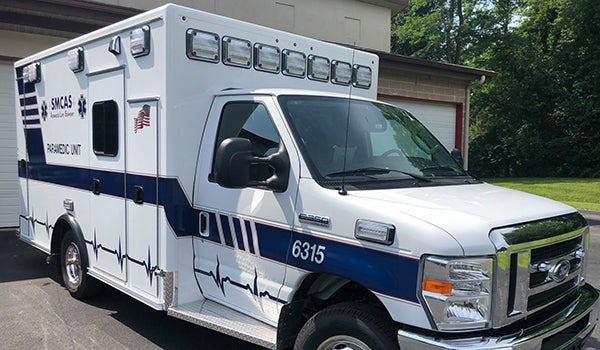Niles Township tables SMCAS Special Assessment District vote
Published 2:18 pm Wednesday, July 20, 2022

- (Leader File Photo)
|
Getting your Trinity Audio player ready...
|
NILES CHARTER TOWNSHIP — Township leaders have delayed the decision on a proposed 150 percent increase in assessments for the local ambulance service.
Southwestern Michigan Community Ambulance Service is requesting a five-year step increase in the Special Assessment District rate – from $20 annually to $50 annually.
On Monday, the Niles Charter Township Board of Trustees tabled its decision until Aug. 1 to allow SMCAS time to adjust its request.
“I just think it needs to be justified,” said Township Treasurer Jim Ringler of the rate increase. “I’m not saying raises aren’t, but it just needs to be totally justified and laid out to the people because they’re the ones paying.”
SMACS originally presented its proposal for an increase during the June 6 meeting. The non-profit, municipally-owned and operated advanced life support ambulance service has provided 24/7 emergency response in Southwest Michigan since 1976, serving residents within the Cities of Buchanan and Niles, as well as Buchanan, Niles, Howard, Bertrand, Milton and Pokagon Townships.
Currently, each parcel within the agency’s service area pays $20 per year to have Advanced Life Support level service on call 24/7. According to SMCAS, the rate has not increased in more than 25 years while operational costs and call volume have continued to climb without additional funding.
SMCAS is seeking an increased special assessment rate to ensure it can continue providing the high-level of skilled pre-hospital care residents expect. The additional funding would be used to recruit and retain new and existing staff, pay staff an industry standard for their work, and better cover operational costs.
Under the current request, the rate would gradually increase over the next five years. The rate would increase from $20 to $30 in the first year and increase $5 per year after that until capping at $50 per year. That amounts to just over $4 per month per household or parcel.
The requested increase will help SMCAS avoid reducing EMS services, lengthening response times, and limiting critical emergency care; something other communities across Michigan are experiencing.
According to SMCAS Director Brian Scribner, the decision to ask the township to table the agenda item was made to allow SMCAS to adjust its proposal in an effort to make it more acceptable for the municipalities.
“We did talk to our attorney (Monday) and he is looking at drafting up language that would eliminate undeveloped parcels from the assessment. In other words, we would only assess developed parcels because it seems to be one of the major concerns. We believe that it’s probably time to back up quickly and get the communities together and arrive at something that’s acceptable for everybody.
Ringler, who was the acting chair in Township Supervisor Jim Stover’s absence on Monday, said that the township was prepared to take action and approve the SAD, though it may not have been at the proposed rate.
“What we don’t like, and I think what most municipalities struggle with, is you have seven people that are determining for the rest of the township, what they will pay on a subsidy,” he said. “What you get paid is a sham and a shame, but, it is what it is. The issue isn’t really anything to do with SMCAS’ service, quality or you individually. We appreciate what you guys do; we need you. It’s just that this funding is a nightmare, truly a nightmare.”
Ringler said that if SMCAS was funded by a millage instead of a SAD, it would be better overall but unfair in other ways.
“It’s unfair in other ways because on a millage, the guy that owns a million-dollar house pays a hundred bucks and gets the exact same ambulance service that the guy who owns a house and is paying twenty bucks,” he said. “We struggle up here with the right way to do this. We’d love to see a millage in some ways because it builds in an automatic increase as taxable values go up. We wouldn’t be back here doing this every five years if it was done under a millage and not only that, people get to vote – that can be good or bad. They could vote you out but most of the time, most public safety issues, get voted in.”
While Ringler said he understands SMCAS’ desire to have all municipalities on the same page, he does not believe it is necessary in order for a decision to be made.
“I don’t think that each municipality has to agree in unison,” Ringler said. “it may be more fair and equitable if everybody agrees and be on the same page but if they all passed it at your requested rate and we said ‘no, we’re going to do 20 dollars and we’ll make up any shortfall differences,’ then that’s what we do and we have the obligation to make up shortfall difference.”
The board asked Scribner and SMCAS to provide more detail as to where the funds from the rate increase would go ahead of the board’s Aug. 1 meeting.






